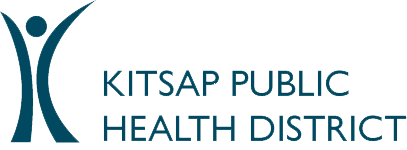
ACTIONS REQUESTED
BE AWARE that Centers for Disease Control and Prevention (CDC) recommends that providers test children born to people with:
- Detectable Hepatitis C virus (HCV) RNA
- Positive HCV antibody results and unknown HCV RNA status
TEST perinatally exposed children between the ages of 2-6 months (up to 17 months) old with an HCV RNA test. Do not test children less than 18 months old for HCV antibodies (anti-HCV). Testing for HCV antibodies (anti-HCV) in children less than 18 months old can result in false positives because antibodies from the mother might last until this age.
Give untested children older than 18 months an HCV antibody test with reflex to HCV RNA.
- Children with an undetectable HCV RNA result at or after 2 months old do not require follow-up unless clinically warranted.
- Refer children with detectable HCV RNA to a healthcare provider with expertise in pediatric Hepatitis C management.
REPORT Hepatitis C cases in pregnant people and the birth of an exposed infant. Initial perinatal Hepatitis C diagnoses are notifiable to local health jurisdictions within 24 hours. Complete the Hepatitis C fax form and fax it to Kitsap Public Health District at 360-813-1168 or call the Health District’s 24-hour reporting line at 360-728-2235.
BACKGROUND
Perinatal Hepatitis C is increasing. Rates of HCV infection during pregnancy in the United States increased 20% from 2016 to 2020. About 6% to 7% of all perinatally exposed children will develop chronic HCV infection.
- Curative direct-acting antiviral (DAA) therapy has a success rate of over 95% and can be started at 3 years old.
- Testing and identification of perinatally infected children, referral to care, and curative treatment are important steps to achieve Hepatitis C elimination.
Consult Washington State Department of Health’s Hep C Free WA plan for further recommendations.
- Hepatitis C is the most common bloodborne infection in the United States. Washington State Department of Health’s Hep C Free WA program strives to eliminate Hepatitis C in Washington by 2030.
- Treating Hepatitis C can be done by primary care providers (PCPs) and is covered by most insurances, including Medicaid. Please reach out to Justin Shoriz at justin.shoriz@kitsappublichealth.org or 360-516-8075 if you are interested in providing Hepatitis C treatment to your patients or have questions about how to test and/or treat patients exposed to Hepatitis C.
ADDITIONAL RESOURCES
- Clinical consultation and didactics for clinicians and others managing viral hepatitis available through University of Washington’s Project ECHO: Viral Hepatitis weekly videoconferences (CME credits available)
- CDC’s Recommendations for Hepatitis C testing among perinatally exposed children
- CDC’s Algorithm for HCV testing of perinatally exposed children
- CDC’s Algorithm for HCV testing of perinatally exposed children older than 18 months
- University of Washington’s Diagnosis, monitoring, and management of HCV infection
- CDC’s Perinatal Hepatitis recommendations
- CDC’s Interpretation of Hepatitis B Serologic Test Results
- CDC’s Child and Adolescent Immunization Schedule
CONTACTING THE HEALTH DISTRICT
Call us at 360-728-2235 and leave a message to report notifiable conditions 24 hours a day, 7 days a week. Fax us at 360-813-1168 with the same information.
This advisory is also posted on the health advisory page of our Provider Resources website, providers.kitsappublichealth.org.
